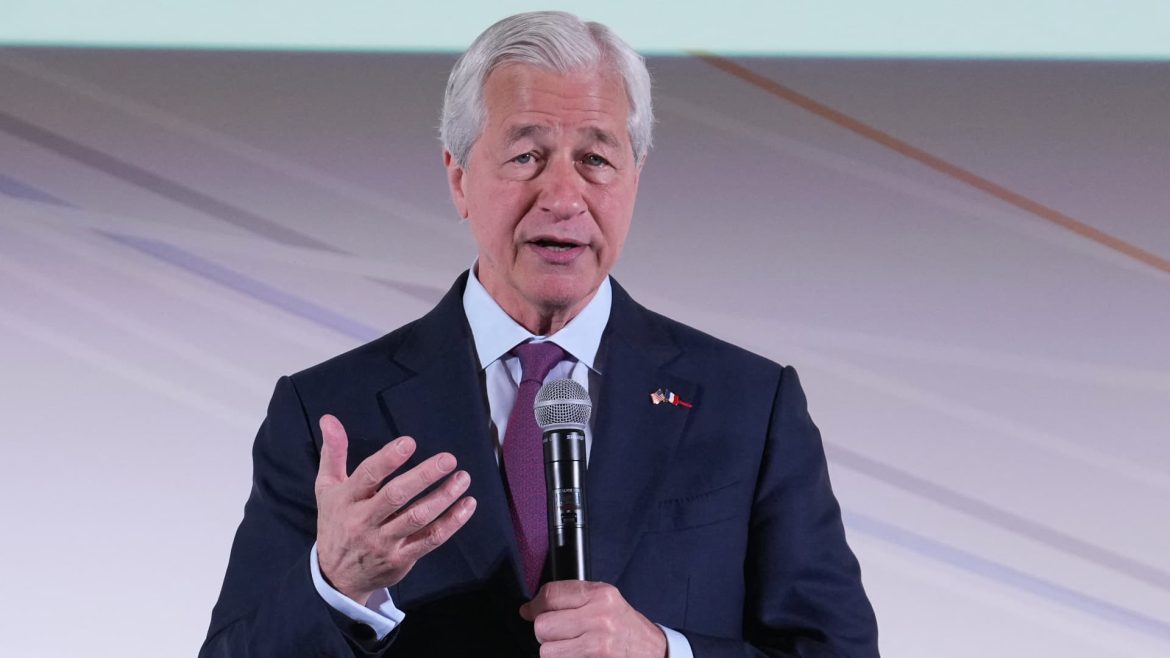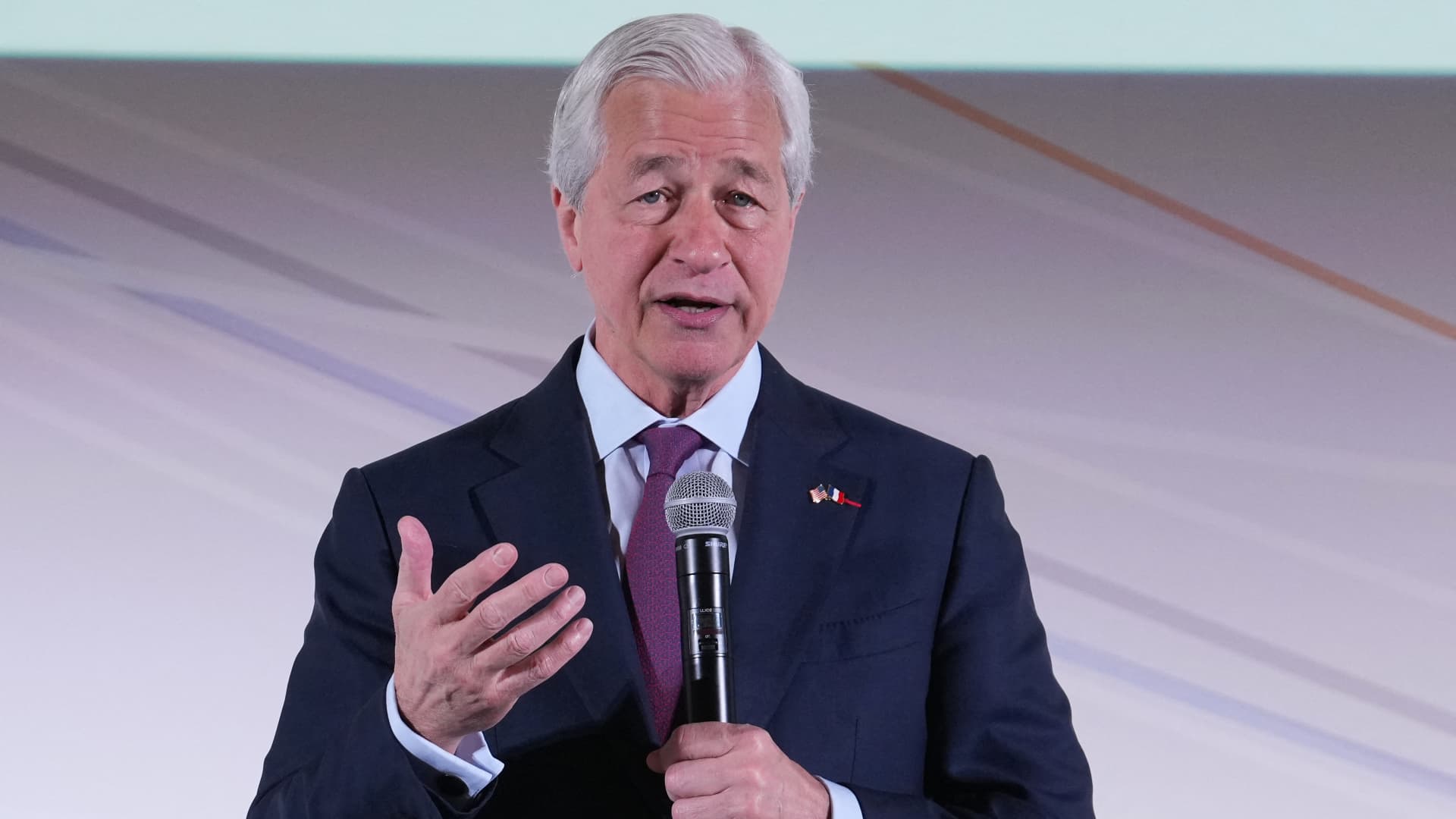Understanding Jamie Dimon’s Caution: Market Volatility and Economic Risks Amid Tariffs
—
Jamie Dimon, the influential CEO of JPMorgan Chase, has become a prominent voice expressing deep concerns over the economic landscape shaped by geopolitical tensions, especially U.S. tariffs. His observations reflect the intricate dynamics between trade policies, inflation, market behavior, and the broader economy’s resilience in uncertain times.
The Persistent Shadow of Tariffs on Economic Growth
Dimon repeatedly highlights that the full consequence of the tariff policies—including those initiated under the Trump administration—have not yet fully impacted the broader U.S. economy. His assessment suggests a latent risk that could escalate economic challenges down the line.
Tariffs, by design, act as a tax on imported goods, which tends to increase the cost of products both for consumers and businesses relying on global supply chains. This ripple effect feeds into overall inflation—already described by Dimon as potentially “stickier”—meaning it’s more persistent and resistant to traditional monetary policy remedies. Such inflationary pressure combined with tariffs risks slowing economic growth in the U.S., potentially tipping the economy toward recession, a possibility Dimon explicitly flags with warnings of “considerable turbulence” ahead.
Market Complacency Amid Heightened Risks
One of Dimon’s salient points centers on what he calls an “extraordinary amount of complacency” prevailing among investors and central banks. Despite recent volatility and a brief market pullback with a 10% drop followed by a near-equivalent recovery, Dimon suggests that investors remain overly optimistic—underestimating the risks related to persistent tariffs, rising inflation, and escalating U.S. deficits.
His skepticism extends to central banks, which he perceives as “almost complacent,” assuming they can effectively manage simultaneous challenges such as inflationary pressures, geopolitical risks, and government deficits. This combination shrinks the margin for error in markets and policy responses.
Inflation’s Undercurrent and its Link to Tariffs
Dimon explicitly warns that tariffs will accelerate inflation on both foreign and domestic goods. As costs rise, consumer spending power diminishes, squeezing growth prospects. This inflationary boost complicates the Federal Reserve’s task, possibly prompting higher interest rates than currently priced in by markets.
With inflation remaining “sticky,” the usual measures to anchor price stability might prove insufficient or require more aggressive interventions, potentially leading to heavier economic headwinds, including reduced business investment and slowed hiring.
Geopolitical Uncertainty and Long-Term Economic Alliances
Dimon places significant emphasis on the geopolitical undercurrents that feed into market volatility. The ongoing trade tensions—especially involving major economies such as China—and the risk of fracturing long-standing economic alliances present not just immediate financial challenges but also threaten the cohesion and reliability of the global trade framework.
He cautions that these geopolitical fractures could have “disastrous” long-term effects if not resolved quickly through serious trade negotiations and diplomacy. Beyond economics, Dimon frames these risks as a threat to the Western economic order and even the preservation of democratic values through a united free world.
Recession Forecast and Corporate Response
JPMorgan, under Dimon’s leadership, forecasts a recession probability as high as 60%, reflecting his cautious stance on economic outlooks. Dimon notes the growing wariness among corporate clients, many of whom act “as if we’re going into a recession,” impacting deal flows, mergers, and acquisitions.
While volatile markets may temporarily boost some capital markets activities, they generally suppress equity issuance and broader business optimism. The bank itself aims to “resist” additional headcount growth, revealing a prudent approach to managing uncertain economic conditions.
Dimon’s Call for Humility and Quick Resolution
Amid these warnings, Dimon advocates humility—both from market participants and policymakers. History, he reminds, shows that even strong banks can stumble in turbulent environments, despite delivering promising returns.
His repeated urging for swift resolution of tariff disputes signals the urgency to mitigate economic damage and restore confidence. Dimon emphasizes that addressing these issues efficiently is critical for stabilizing inflation, repairing supply chains, and preventing deeper recession risks.
—
Conclusion: Navigating a Precarious Path
Jamie Dimon’s insights portray an economy walking a tightrope fraught with tariff-induced inflation, geopolitical tension, and market complacency that could undermine even robust financial institutions. His warnings serve not simply as cautionary tales but as calls to action: for policymakers to negotiate and calm trade disputes, for markets to reassess risk realistically, and for corporations to prepare for volatility.
In a world where tariffs are not just economic levers but geopolitical signals, the stakes transcend traditional financial calculations. Dimon’s perspective compels a broader understanding—that economic stability connects to resolving global tensions and that the consequences of inaction or complacency could resonate far deeper and longer than anticipated.





